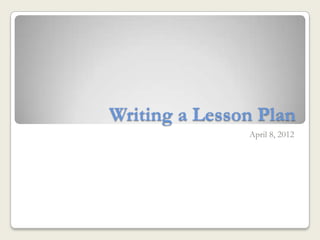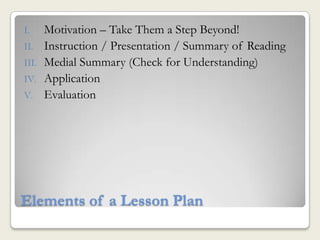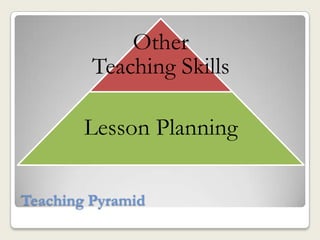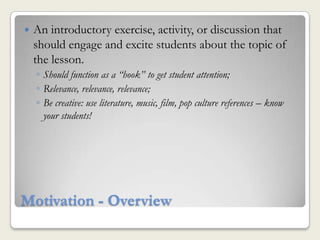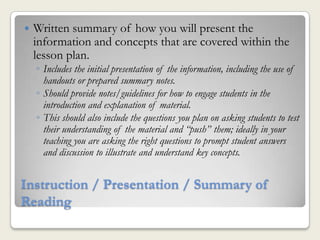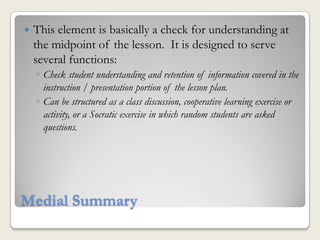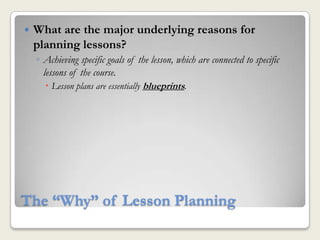This document provides guidance on writing effective lesson plans. It outlines five key elements of a lesson plan: 1) Motivation, which engages students through an activity or discussion; 2) Instruction/Presentation, which presents new concepts and information; 3) Medial Summary, which checks student understanding mid-lesson; 4) Application, which allows students to apply what they've learned; and 5) Evaluation, which assesses student learning. The document emphasizes establishing clear learning goals and focusing on developing students' enduring understanding of core concepts.
